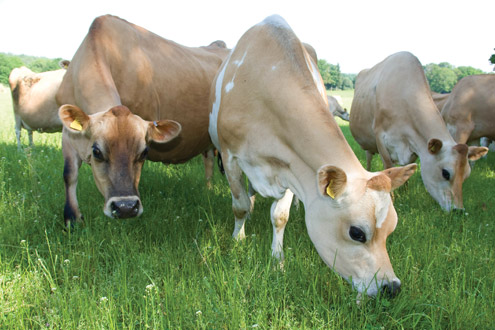Vet Watch: Take a fresh look at grazing for cows

Sarah Caldwel
Calweton Vet Centre, Cornwall
As cows go out to grass, it’s time to have a fresh look at the dining arrangements they have been putting up with all winter.
Most things on a dairy farm come back to feeding or, more fundamentally, getting cows to eat and drink and then digest as much as possible.
Cows have a highly developed sense of taste and smell, so take a proper look at those troughs. How much rotting old food is stuck there? How many cows have hard lumps on their neck from having to hurt themselves to feed because the feed rails are set wrong? Milk is fundamentally water – is their drinking water really clean?
Now is the time to plan a summer overhaul to improve these areas, as water and forage consumption are vital to the bottom line of any dairy business.
Barry Jones
Shropshire Farm Vets, Shropshire
When cows are eventually turned out this spring, following the cold wet weather, they will be at a high risk of grass staggers, a nervous disease caused by low blood magnesium.
Factors that increase the risk of grass staggers include rapidly growing spring ryegrass, high moisture content in the grass and application of potassium fertilisers, which reduce magnesium uptake in the grass.
Cows have no stores of magnesium and therefore require supplementation during this risk period. Supplementation can be achieved through the addition of magnesium to the feed or inclusion in concentrates, using slow release magnesium boluses, or by adding magnesium chloride flakes to drinking water.
Remember however, wet weather may mean cows are less likely to drink from the trough and will therefore not receive as much magnesium as you think they should.
Grass staggers is an emergency and vet treatment must be prompt.
Anushcka Marsman
ProStock Vets, Carmanthenshire
Cows are out in the day to save on silage and in overnight to save on grass. It looks like first cut will be late and this will affect everyone. The going is tough, but no one can influence the weather.
We organised a meeting last autumn on making the most of your winter forage. Hefin Richard did an excellent presentation and it couldn’t have been more relevant. Looking forward, we might have a similar scenario this year if grass is late. Planning ahead and not carrying passengers were some of the take-home messages.
Calves have been suffering as well, with both scours and pneumonia. Bouts of pneumonia have followed calm days that test the natural ventilation of sheds. Cryptosporidium is topping the charts of scour causes. Getting a diagnosis and checking colostrum intakes to ensure calves stand a chance of survival when they do get ill is vital.
